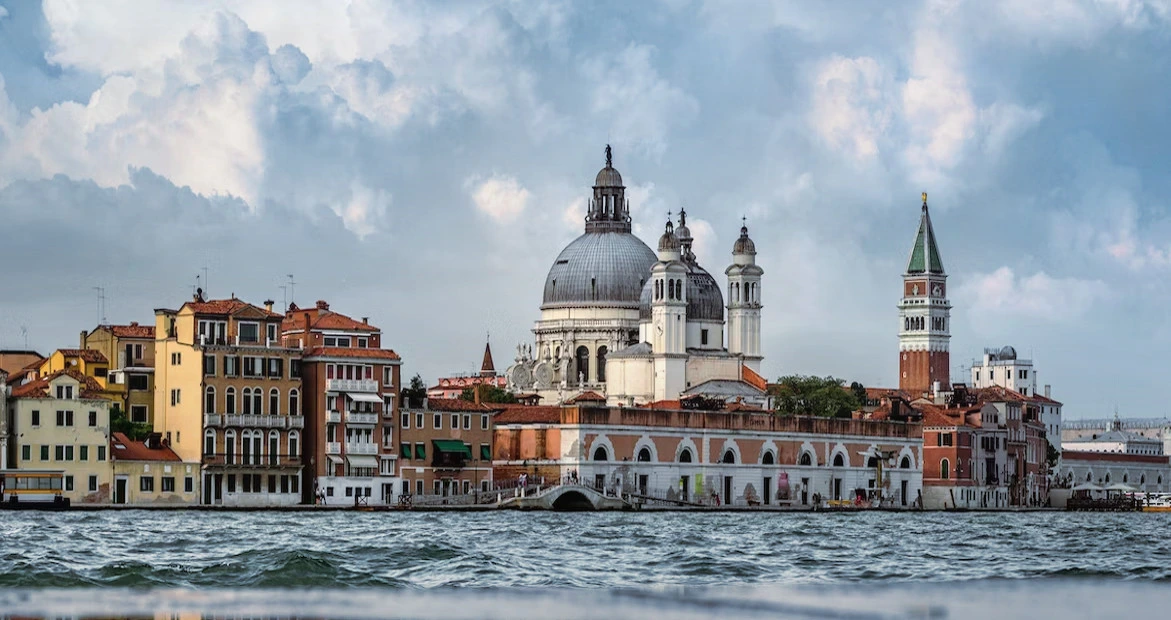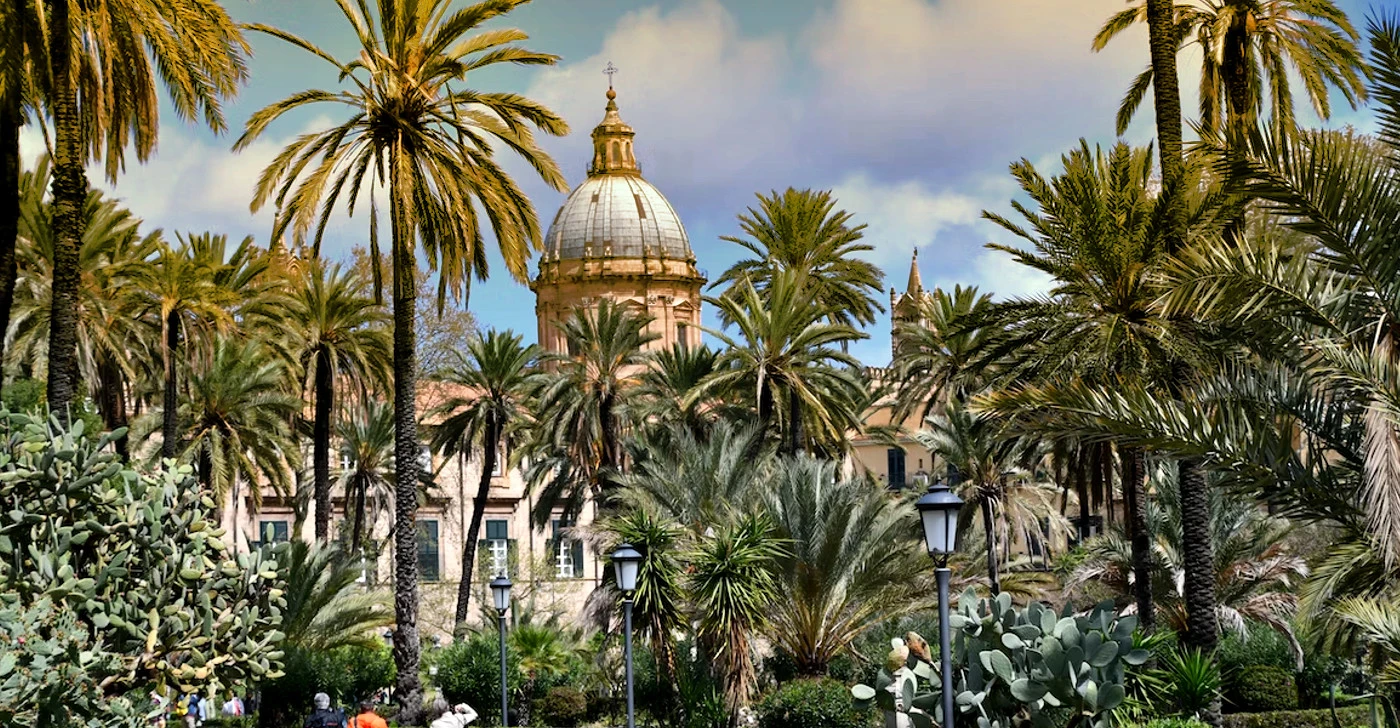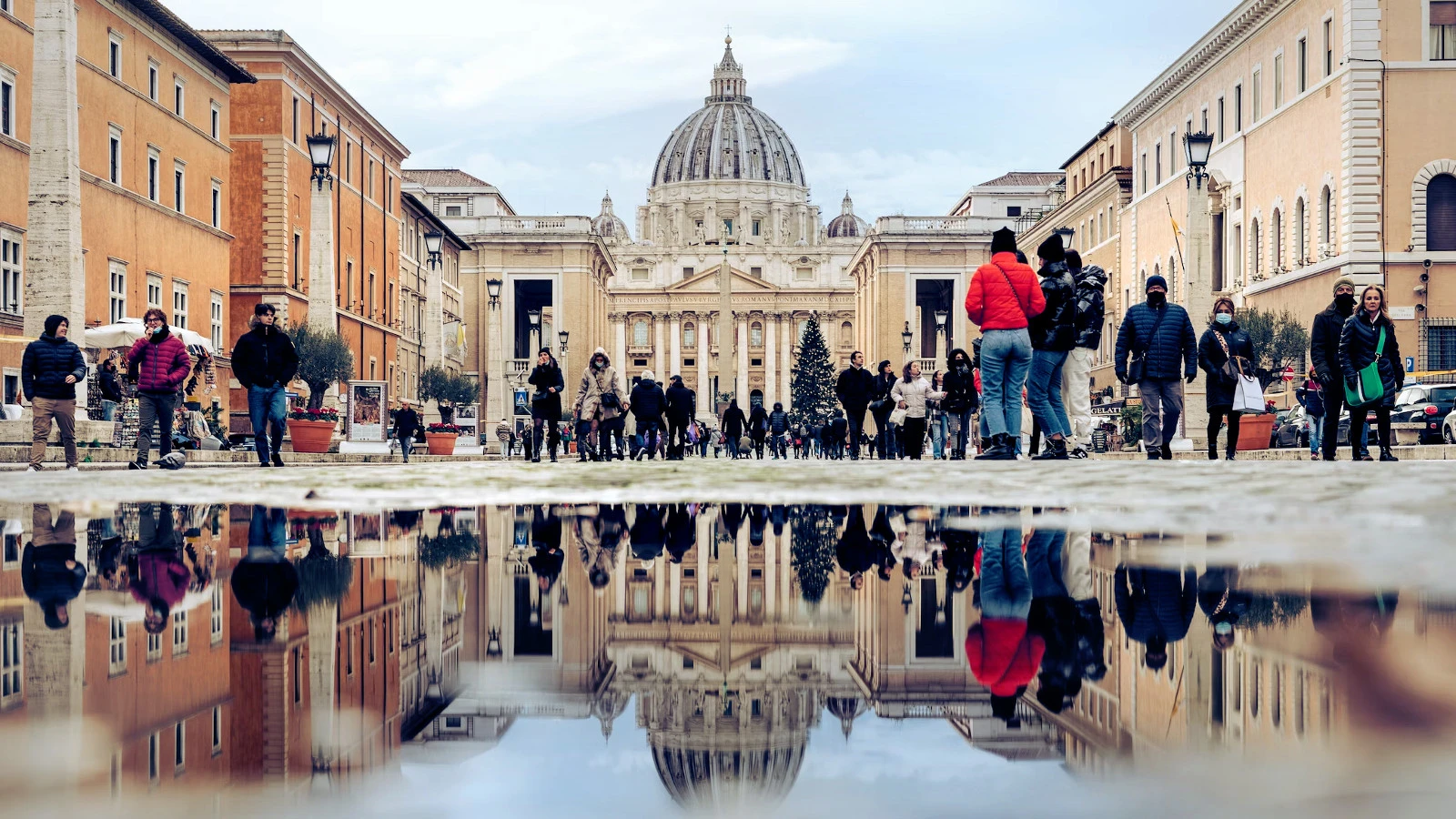Living in Turin
Turin is one of the most elegant and refined cities in Italy, with a rich cultural and historical heritage.It is the capital of the Piedmont region, bordering France and Switzerland, and situated at the foot of the Alps.
Living in Turin as an expat can be both rewarding and challenging.
You can enjoy the benefits of living in a beautiful and sophisticated city that offers a lot of culture and entertainment, but you also have to deal with the cold and foggy weather, the traffic and the bureaucracy.
Turin is the fourth most populous city in Italy, after Rome, Milan and Naples, with about 900,000 inhabitants.
It is also the core of the wider Turin metropolitan area, which has about 2.2 million people.
Turin is a major industrial and political center, as well as a cultural and artistic hub.
It is known for its automotive industry, especially Fiat and Lancia, its royal palaces and residences, its museums and galleries, and its famous landmarks, such as the Mole Antonelliana and the Shroud of Turin.
It has a GDP of about €70 billion ($86 billion), making it one of the wealthiest and most productive cities in Italy and Europe.
Search for:
What is Turin like?
Turin is a cosmopolitan and multicultural city, with a diverse and dynamic population.It is home to people from different countries, cultures and backgrounds, who contribute to the city’s social and cultural life.
Turin is also a historical and artistic city, with a long and prestigious tradition.
It was the first capital of Italy, the seat of the House of Savoy, and the center of the Italian Risorgimento.
It hosts many monuments, museums, palaces, churches, and parks, covering various fields of interest, such as history, art, religion, science, and nature.
Some of the most famous cultural attractions in Turin are the Royal Palace, the Cathedral of San Giovanni, the Egyptian Museum, the Cinema Museum, the Automobile Museum, and the Valentino Park.
Climate
Living in Turin means experiencing four seasons, each with its own charm and challenges.In the summer, it’s warm and sunny, and you can enjoy the outdoor activities and events.
In the winter, it’s cold and foggy, and you can admire the snow and the mountains.
The spring and the autumn are mild and pleasant, with some rain and some sun.
You can see the flowers and the leaves, and enjoy the culture and the art.
Turin is not very sunny or rainy by Italian standards, but it still has some clear and bright days, and some wet and cloudy days.
The weather can be changeable and unpredictable, so you need to be prepared for anything.
Economy
Turin is a key economic and business center, and one of the main engines of the Italian economy.It has a diversified and dynamic economy, based on sectors such as automotive, aerospace, engineering, design, media, tourism, trade and services.
It is also a leading center for innovation and research, hosting several universities, colleges and institutes, such as the University of Turin, the Polytechnic of Turin, the University of Gastronomic Sciences, and the European Institute of Design.
Turin offers many opportunities for work and career development, especially for skilled and qualified professionals.
However, it is also a city that faces some social and economic challenges, such as pollution, congestion, unemployment and immigration.
According to the latest data, about 12% of the population in Turin lives below the poverty line, and about 8% is unemployed.
The city also hosts a large number of immigrants, mostly from Romania, Morocco, Albania and China, who often face difficulties in integrating and accessing basic services.
The city authorities have implemented various policies and initiatives to address these issues, such as environmental protection, urban regeneration, social inclusion, and education and training.
Education
Turin is an academic city, with a large and diverse student population.It has several public and private universities and colleges, offering a wide range of courses and degrees, from humanities and social sciences to engineering and medicine.
Some of the most prestigious and renowned academic institutions in Turin are the University of Turin, the Polytechnic of Turin, the University of Gastronomic Sciences, and the European Institute of Design.
The city also has many international schools, catering to the needs of expat families and children.
Some of the most popular and reputable international schools in Turin are the International School of Turin, the International School of Moncalieri, the International School of the Sacred Heart, and the St. George’s British International School.
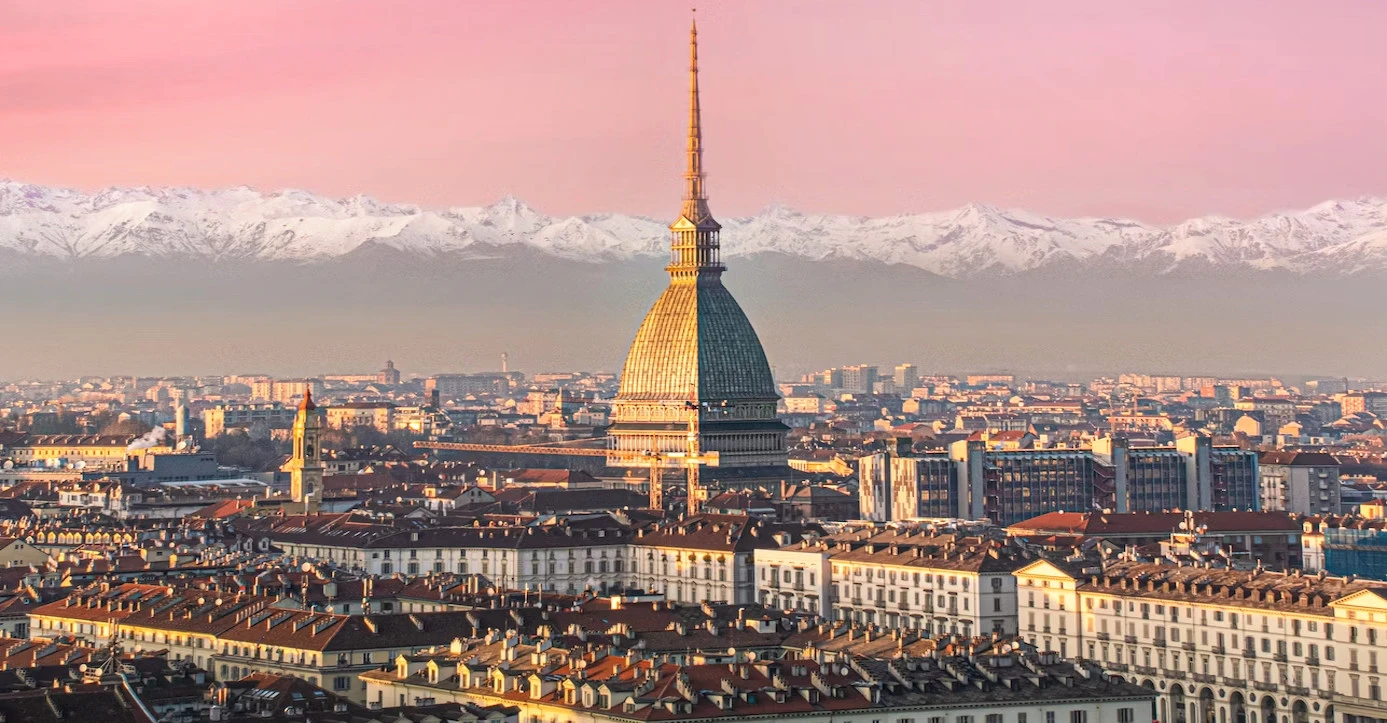
Cost of living in Turin
The cost of living in Turin is moderate compared to other Italian cities.It is cheaper than Milan and Rome, but more expensive than Naples and Palermo.
A family of four estimated monthly costs are €3,500 without rent, and a single person estimated monthly costs are €1,800 without rent.
Rent in Turin is also reasonable, especially outside the city center.
For example, a one-bedroom apartment in the city center costs about €600 per month, while a three-bedroom apartment costs about €1,000 per month.
The prices of food, transportation, utilities, and entertainment are also lower than the national average.
Is Turin safe?
Turin is a relatively safe city for tourists and expats, with a moderate crime rate compared to other major cities in Italy and Europe.However, some precautions are recommended, especially in certain areas and situations.
The most common crimes in Turin are pickpocketing, bag-snatching, scams and vandalism, which usually target crowded and touristy places, such as the city center, the railway station, the metro and the buses.
To avoid these risks, it is advisable to be vigilant and careful, to keep your valuables close and secure, to avoid suspicious or aggressive people, and to report any incident to the police.
Turin is also generally safe at night, but it is better to avoid walking alone in dark and isolated streets, and to stick to the well-lit and busy areas.
Pros and cons of life in Turin
| Pros | Cons |
|---|---|
| Elegant and refined city | Cold and foggy city |
| Rich cultural and historical heritage | Expensive housing |
| Proximity to the Alps | Language and culture barriers |
| Excellent food and wine | Polluted and congested |
| Good public transportation | Lack of diversity |
| Low cost of living | Low work and opportunities |
| High quality of healthcare | Bureaucratic and rigid system |
| Cosmopolitan and diverse city | Less lively and vibrant atmosphere |
Advantages of Living in Turin
Overall, Turin is an elegant and refined city, with a rich cultural and historical heritage.You can explore its many attractions, such as museums, palaces, churches, and parks, and immerse yourself in its history.
It is also a gastronomic capital, with many local specialties and wines, such as chocolate, coffee, truffles, and Barolo.
The city has a good public transportation system, which makes it easy to get around and to other parts of Italy and Europe by train and air.
Not only that, but you can also enjoy its proximity to the Alps, where you can have breathtaking views and easy access to hiking and skiing opportunities.
Turin is a cosmopolitan and diverse city, where you can meet people from different countries, cultures and backgrounds, who contribute to the city’s social and cultural life.
Italian is widely spoken here, but you can also find people who speak English, French, and other languages, which makes it easier for you to communicate and find work.
The city has a diversified and dynamic economy, which offers you many opportunities for work and career development, especially in sectors such as automotive, aerospace, engineering, design, media, tourism, trade and services.
Turin has a moderate cost of living, which makes it more affordable than other Italian cities, and a high quality of life, with excellent education, healthcare, and social services, which ensure your well-being and happiness.
Disadvantages of Living in Turin
Turin can be cold and foggy to live in.You can face difficulties in finding affordable housing, especially in the city center, where the prices are high and the availability is low.
You can also encounter problems with the language and culture, as English is not widely spoken and the locals can be reserved and formal.
The city can be polluted and congested, with traffic and smog, which can affect your health and environment.
Turin is not very diverse, and the expat community is small and scattered.
You can also have trouble finding work and opportunities, as the economy is not very stable and the competition is high, especially for foreigners.
Moreover, the city can have a bureaucratic and rigid system, which can be frustrating and annoying, especially for expats, who have to deal with a lot of paperwork and regulations.
In addition to that, compared to other parts of Italy, Turin can have a less lively and vibrant atmosphere, which can make it boring and dull for some people.
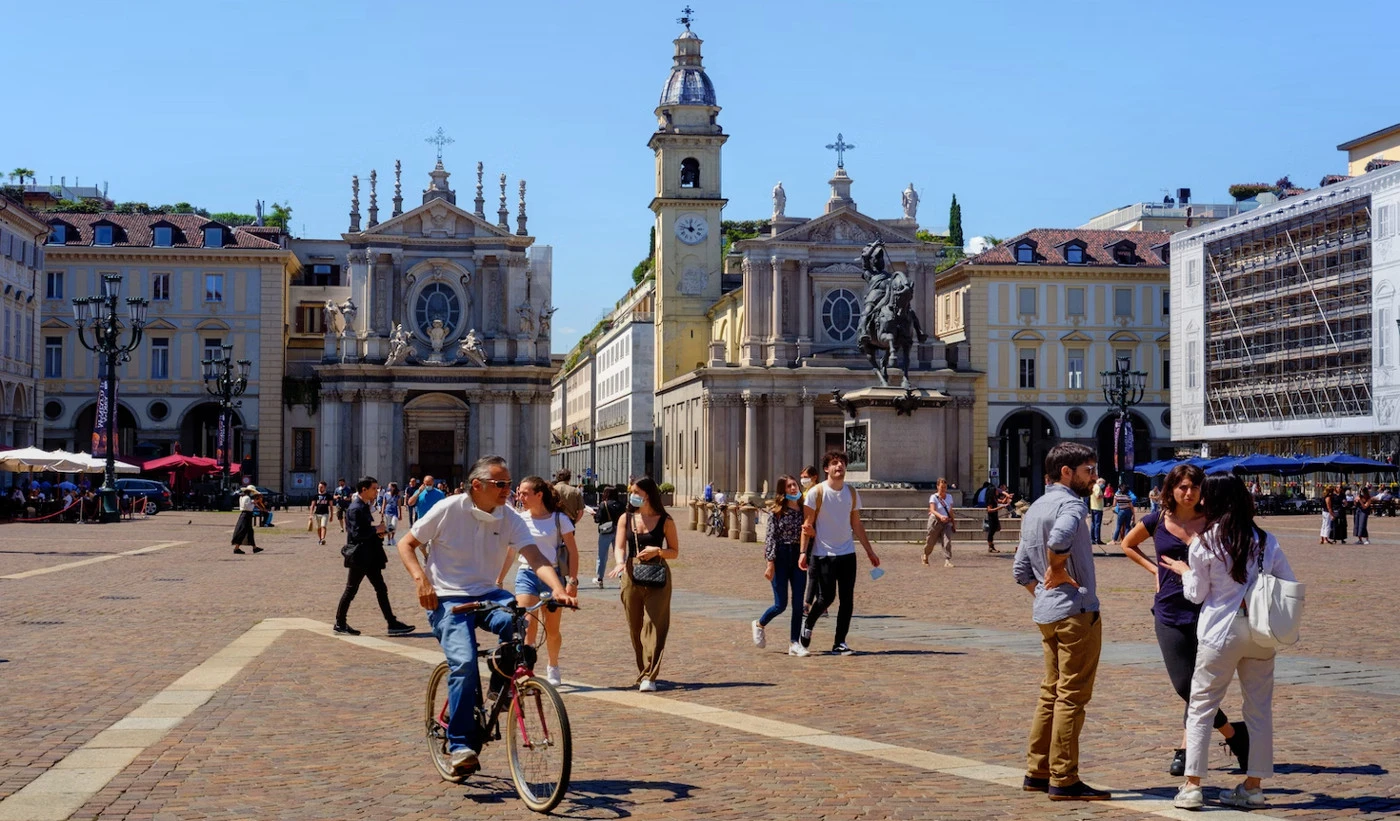
FAQs
What is Turin like for foreigners?
Turin is an elegant and refined city, with a rich cultural and historical heritage.It is the capital of the Piedmont region, bordering France and Switzerland, and situated at the foot of the Alps.
It is a great choice for expats who love history and culture.
Turin offers many attractions, such as museums, palaces, churches, and parks, as well as a sophisticated food and wine culture.
Living in Turin as an expat can be both rewarding and challenging.
You can enjoy the benefits of a beautiful and sophisticated city that offers a lot of culture and entertainment, but you also have to deal with the cold and foggy weather, the language and culture barriers, and the bureaucratic and rigid system.
Some of the best areas for expats to live in Turin are the historic center, the Santo Stefano district, and the hills around the city.
What is Turin like for students?
Turin is an ideal destination for students who want to pursue their studies in Italy or abroad.The city has a long and distinguished academic tradition, as it hosts several public and private universities and colleges, offering a broad range of courses and degrees, from humanities and social sciences to engineering and medicine.
Some of the most prestigious and renowned academic institutions in Turin are the University of Turin, the Polytechnic of Turin, the University of Gastronomic Sciences, and the European Institute of Design.
Studying in Turin means being part of a stimulating and enriching educational environment, a diverse and international student community, a lively and varied cultural scene, and a lot of opportunities for socializing and networking.
Turin is also a beautiful and elegant city, with many attractions, such as museums, palaces, churches, and parks, as well as a refined food and wine culture.
Turin is a city that blends history and innovation, tradition and diversity, culture and fun, making it one of the best cities to move to as a student in Italy.
What is Turin like for women?
Turin is a city with a rich social and political heritage, but also a complex history of gender and sexuality.It is a city that has produced and hosted many influential women who have contributed to various fields, such as science, art, literature, and activism.
Women in Turin can benefit from a diverse and dynamic environment, a high level of culture and services, and a strong sense of solidarity and participation.
However, women in Turin also have to deal with some issues, such as wage gap, violence, and discrimination, that affect their rights and opportunities in society.
What is Turin like for LGBTQ people?
Turin is one of the best cities in Italy to live as a LGBTQ+ person, as it has a vibrant and diverse queer community, with many venues, events, and activities for all tastes and preferences.The city embraces diversity and inclusion, and has a strong LGBTQ+ culture, with influential artists, writers, and performers who advocate for LGBTQ+ rights.
Turin is also a progressive and cosmopolitan city, that stands out from other Italian cities for its openness and modernity.
It has a legacy of hosting important LGBTQ+ events, such as the first Italian Gay Pride in 1982, the World Pride in 2006, and the EuroPride in 2011.
Living in Turin as a LGBTQ+ person means enjoying a high quality of life, a supportive and friendly community, and a lot of opportunities for culture and entertainment.
However, Turin is not a perfect city, and it still faces some issues and challenges related to gender and sexuality, such as discrimination, violence, and homophobia, that need constant work and awareness.
Is Turin a poor city?
Turin is a fairly rich city in Italy, with a GDP per capita of €32,000 ($39,000), which is higher than the national average of €28,000 ($33,000).Turin has a varied and dynamic economy, based on sectors such as automotive, aerospace, engineering, design, media, tourism, trade and services.
It is also a center for innovation and research, hosting several universities, colleges and institutes.
However, Turin also faces some social and economic challenges, such as unemployment, poverty, inequality, and environmental issues.
According to the latest data, the unemployment rate in Turin is 8.2%, slightly lower than the national average of 8.8%.
The poverty rate is 9.8%, which is close to the national average of 9.4%, but still affects about 90,000 people in the city.
Is Turin dirty?
Turin is a reasonably clean city in Italy, with a good level of air quality, waste management, and water sanitation.Turin ranked 10th out of 104 Italian cities in the latest environmental survey by Legambiente and Ambiente Italia, which measures the quality of urban ecosystems.
Turin has implemented several initiatives to improve its cleanliness and sustainability, such as promoting public transportation, cycling, and car-sharing, reducing greenhouse gas emissions, increasing recycling and composting, and protecting green areas and biodiversity.
Is Turin a fun city?
Turin is a fun city for those who love culture and creativity, with a variety of options to suit different interests and moods.It is famous for its chocolate and coffee, which you can taste in many historic cafes and pastry shops, such as Caffè Al Bicerin, Pasticceria Stratta, and Baratti & Milano.
It has many museums and galleries, ranging from ancient and modern art to science and technology, where you can discover the rich heritage and innovation of the city.
Some of the most renowned museums and galleries in Turin are the Museo Egizio, the Museo Nazionale del Cinema, the Museo Nazionale dell’Automobile, and the Pinacoteca Giovanni e Marella Agnelli.
It also has many cultural events and festivals, such as the Torino Film Festival, the Torino Jazz Festival, the Salone del Libro, and the Luci d’Artista, where you can enjoy cinema, music, literature, and light installations.
For those who prefer more active and adventurous activities, Turin offers many sports and outdoor opportunities, such as skiing, hiking, biking, and rafting in the nearby Alps and hills.
You can also visit the Juventus Stadium, the home of the famous football team, or the Palavela, the venue for ice skating and curling.
Turin is a city that combines tradition and innovation, elegance and energy, culture and fun, making it one of the most interesting and enjoyable cities in Italy.
Is Turin walkable?
Turin is a city that has a high level of walkability, as it is compact, flat, and well-organized into different districts.It also has an efficient public transport network, consisting of buses, trams, metro, and regional trains, that connects the city center with the suburbs and the surrounding areas.
However, Turin also has some advantages for walkers, such as wide sidewalks, covered arcades, green spaces, and scenic views of the Alps and the Po River.
Some of the most walkable areas in Turin are the historic center, the Quadrilatero Romano, the San Salvario, and the Parco del Valentino.
